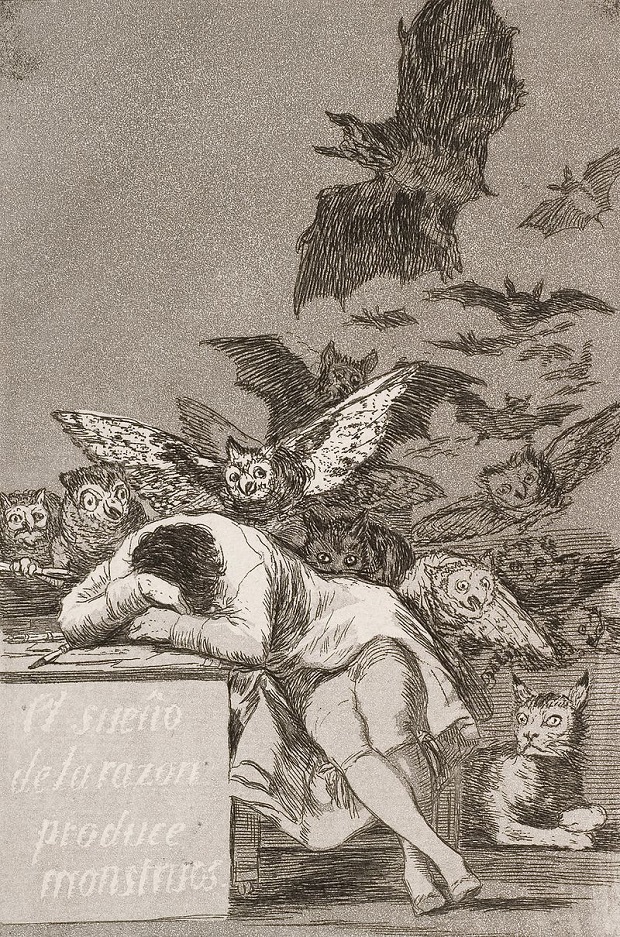- Daily & Weekly newsletters
- Buy & download The Bulletin
- Comment on our articles
Viva Espana! Europalia festival showcases Spanish culture from this autumn
The 30th edition of the Europalia arts biennial will spotlight Spain with some 100 cultural events staged across Belgium from 8 October to 1 February.
It is the second time that Spain has been chosen as the focus of the prestigious international festival, after a previous edition in 1985.
The programme for the upcoming multidisciplinary festival was unveiled at a press conference in Brussels. Aimed at reflecting the diverse panorama of Spanish creativity, as well as recent changes its society, it features theatre, dance, music, film, literature and visual arts. Around 170 artists, established and emerging, are set to perform in 80 locations around the country.
Opening the event this autumn will be the flagship exhibition Luz y Sombra. Goya and Spanish Realism at Bozar in the Belgian capital. Showing paintings, drawings, and engravings by the Spanish master (1746-1828), it includes works by his contemporaries and artists of later generations.

Goya’s series of engravings Caprichos, Disparates and Desastres de la Guerra (Quirks, Madnesses, Disasters of War) and their critical vision of the turbulent period in which he lived served as inspiration for the Europalia programme, according to the festival’s artistic directors Maral Kekejian and Dirk Vermaelen.
Among other important exhibitions are a focus on the depiction of women in Resolución. On lifetime decision in Spanish cinema at MoMu in Antwerp, and video and photography representations in Cristina Garrido’s The White Cube is Never Empty at MACS design museum in Grand Hornu.
Meanwhile, the Royal Museum of Mariemont near La Louvière hosts the history exhibition Mary of Hungary. Art & Power in the Renaissance. The beautiful domain once housed the palace and hunting estate of Mary, the sister of Emperor Charles V.
On the performance front, Héctor Espuela Pablo deconstructs the fairy tale of Sleeping Beauty in the solo The Making of a Lethargy in Bruges and Antwerp, and Alberto Cortés tackles capitalist, patriarchal and normative narratives in his solo One Night at the Golden Bar at the Théâtre des Tanneurs in Brussels and in Ghent.

A week-long flamenco focus (pictured) is staged at Bozar and KVS in Brussels, as well as other venues. The traditional dance is fused with contemporary forms of bodily expression by Yinka Esi Graves in The Disappearing Act that is performed in Namur and in Bruges. The important theatre piece 1936 at KVS examines the Spanish Civil War, while a new work Chapters of Celebrations brings Belgian and Spanish choreographies together for a collective musical and dance fiesta about connectedness in queer communities in Charleroi and Ghent.
Cinematek in Brussels will screen the film series Dreams of the Future that look at Spain’s past and contemporary challenges. The city of Ghent hosts Tapas Poetas, a gastronomic event involving four authors reciting poems in the four national and regional languages of Spain.
Moving outside established venues, an intriguing dance and sport performance by six synchronised swimmers is staged at the Wezemberg Swimming Pool in Antwerp. Similarly, Maider Lopez presents a collective performance around the largely hidden Zenne River in Brussels, which highlights the importance of water in the urban environment. Continuing the life element theme, the installation-performance Fires in Ghent’s Astridpark explores its dual role as a destructor and primal force.

For Kekejian and Vermaelen, “the festival invites audiences to explore the complexities of identity, community, and democracy in Spain and beyond.”
Highlighting Belgium and Spain’s centuries of shared history, which lives on today, Belgian foreign minister Maxime Prevot said: “At a time when the world feels increasingly divided, culture reminds us of what binds us. It shapes communities, empowers cities, and offers hope.”
His counterpart, Spanish foreign minister José Manuel Albares Bueno, added: "Europalia España represents a unique opportunity since culture has this double fold: it is an exceptional instrument for challenging ideas, perceptions and concepts , but culture it is also what defines us as a people and connect us with our heritage and traditions.”
Europalia Espana
8 October to 1 February
Across Belgium
Photos: ©Europalia Espana; Francisco José de Goya y Lucientes, The sleep of reason produces monsters from Los Caprichos; Bruselas Flamenco Festival ©Marin D; ©Europalia Espana


















